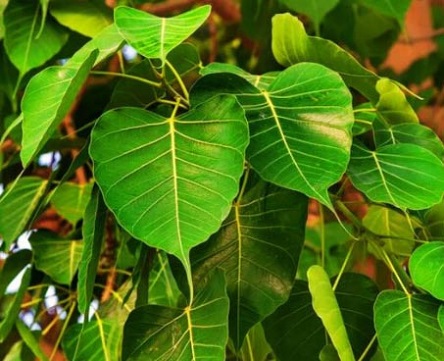Computational study shows that phytochemicals from Ficus religiosa exhibit potential for combating Mpox infections
Nikhil Prasad Fact checked by:Thailand Medical News Team Aug 18, 2024 1 year, 6 months, 1 week, 15 hours, 21 minutes ago
Herbs and Phytochemicals: In a groundbreaking study, researchers from a diverse array of institutions have identified phytochemicals from the Ficus religiosa plant, a species commonly found in India and other parts of Asia, as potential inhibitors of the monkeypox (Mpox) virus. This
Herbs and Phytochemicals news report explores the findings of the study, which could pave the way for new treatments against this emerging global health threat.
 Computational study shows that phytochemicals from Ficus religiosa exhibit
Computational study shows that phytochemicals from Ficus religiosa exhibit
potential for combating Mpox infections
The Growing Threat of Monkeypox
Monkeypox, a virus that was once considered a rare and isolated disease primarily confined to Central and West Africa, has now spread to over 100 non-endemic countries, causing global concern. The World Health Organization (WHO) declared monkeypox a public health emergency of international concern in 2022, highlighting the need for urgent action to combat the virus.
The current outbreak has brought to light the limitations of existing treatments and vaccines, prompting researchers to explore alternative therapeutic options. This article delves into a recent study that investigates the potential of natural compounds from the Ficus religiosa plant as novel treatments for monkeypox.
The Study: Exploring the Power of Ficus religiosa
The study, led by researchers from institutions such as the Department of Chemistry at Government College of Engineering in Odisha, India, and Taif University in Saudi Arabia, focused on the interaction of monkeypox viral proteins with six phytochemicals found in Ficus religiosa. These phytochemicals, known for their medicinal properties, include kaempferol, piperine, and quercetin.
Using advanced computational methods such as molecular docking and molecular dynamics (MD) simulations, the researchers assessed how these compounds interact with the A42R profilin-like protein of the monkeypox virus. This protein plays a crucial role in the virus's replication and assembly, making it an ideal target for drug development.
Key Findings: Kaempferol and Piperine Shine
The study identified two phytochemicals, kaempferol and piperine, as the most promising candidates for further development. Kaempferol, a flavonoid commonly found in many plants, and piperine, an alkaloid responsible for the pungency of black pepper, showed strong binding affinity to the A42R protein.
Kaempferol exhibited a binding energy of -5.57 kcal/mol with a predicted IC50 value of 82.56 µM, while piperine demonstrated even stronger binding with a binding energy of -6.98 kcal/mol and an IC50 value of 7.63 µM. These findings suggest that piperine, in particular, has significant potential as a therapeutic agent against monkeypox.
The Potential Impact of Phytochemicals
The use of natural compounds from plants like Ficus religiosa could o
ffer a more accessible and cost-effective alternative to synthetic drugs, especially in regions where access to conventional medicine is limited.
Moreover, the non-toxic nature of these phytochemicals, as indicated by the study's toxicity analysis, further supports their potential as safe and effective treatments. The ADMET (absorption, distribution, metabolism, excretion, and toxicity) profile of both kaempferol and piperine showed favorable results, with both compounds being non-mutagenic and having low toxicity levels.
Challenges and Future Directions
While the findings of this study are promising, the researchers acknowledge the challenges that lie ahead. The study was primarily computational, meaning that the results need to be validated through in vitro (laboratory-based) and in vivo (animal-based) experiments. Additionally, the effectiveness of these compounds in a clinical setting remains to be determined.
The researchers also suggests that further research should explore the potential synergistic effects of combining these phytochemicals with existing antiviral drugs or other natural compounds. Such combinations could enhance the therapeutic efficacy and provide a more robust treatment option against monkeypox.
Conclusion: A New Hope for Monkeypox Treatment
In conclusion, the study conducted by researchers from multiple institutions has uncovered the potential of Ficus religiosa phytochemicals, particularly kaempferol and piperine, as inhibitors of the monkeypox virus. While more research is needed to confirm these findings, the study offers a promising new direction in the fight against monkeypox.
The study findings were published in the peer-reviewed: Journal of Biosafety and Biosecurity.
https://www.sciencedirect.com/science/article/pii/S258893382400030X
For the latest on
Herbs and Phytochemicals, keep on logging to Thailand Medical News.
Read Also:
https://www.thailandmedical.news/news/marine-fungi-could-hold-the-key-to-new-antiviral-treatments-for-monkeypox-mpox
https://www.thailandmedical.news/news/bisbenzimide-compounds-show-promise-in-combating-poxvirus-infections-including-monkeypox-mpox
